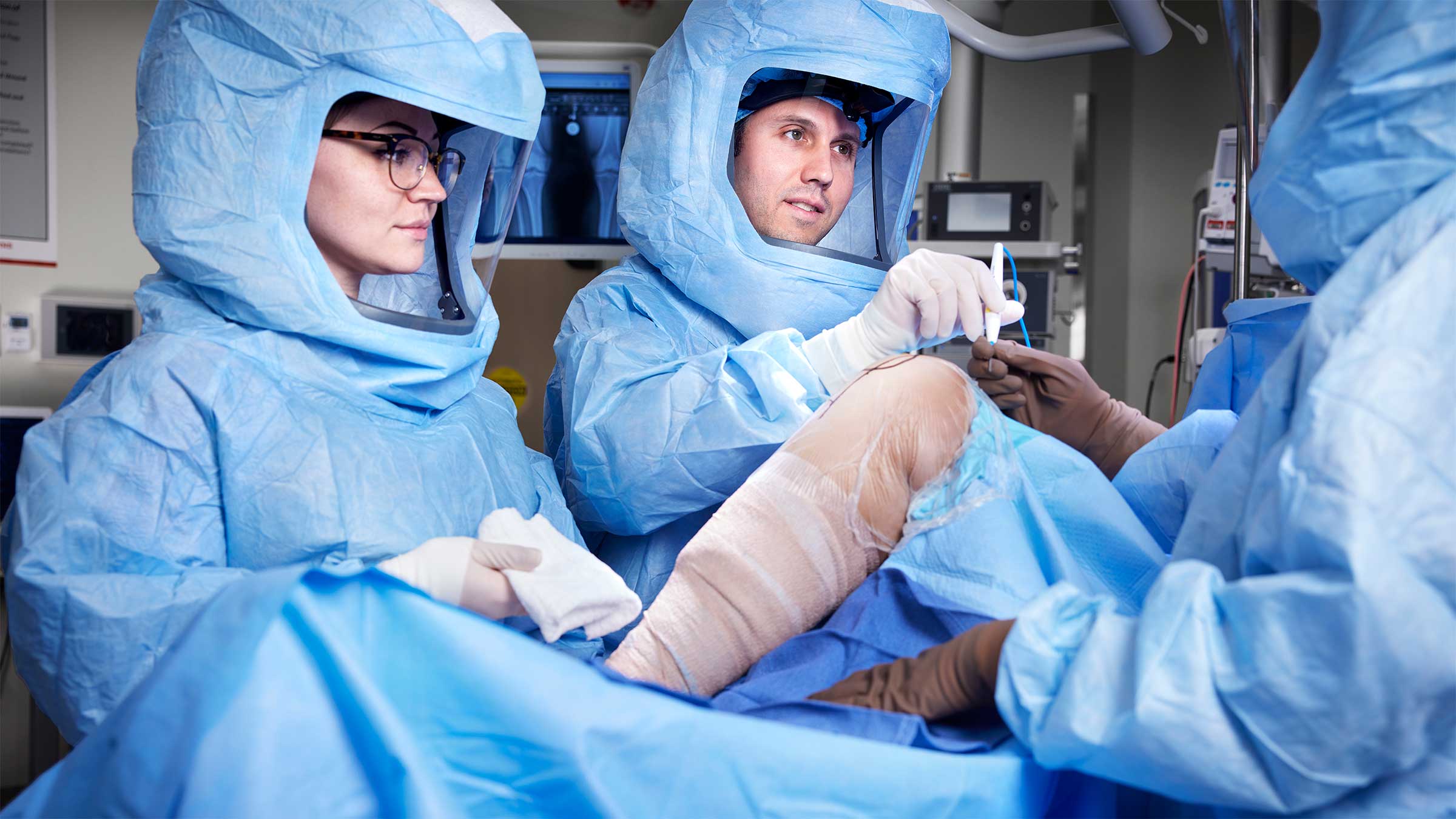
Every woman has specific health needs as an adult — especially when it comes to birth control, pregnancy, menopause and aging. One way to reach your best health as a woman is to prepare for what might be in your future, and one of the best ways to do that is to talk to a woman who shares many of your genes: your mom.
Having these conversations can help you both take better care of your health. Here’s where to start:
1 Have you had breast, ovarian, uterine or colon cancer?
How old were you when diagnosed? What type of cancer? At what stage were you diagnosed? Are there other family members who were diagnosed with the same type of cancer when they were under 50 years old?
If your mother has had breast cancer, ovarian cancer, uterine cancer or colon cancer, you should find out at what age she was diagnosed and if anyone else in her family has a history of cancer (and their age of onset).
Breast and ovarian cancer can be inherited from genes known as BRCA1 or BRCA2. If your mom was diagnosed with cancer at a young age, it’s especially important to find out if she had any genetic testing done. You might be referred to a genetic counselor who can further evaluate your personal risk based on your family history and discuss your own genetic testing with you.
If your mother has been diagnosed with cancer at a young age, you may need to start screening earlier than the standard age (40 for mammograms, 45 colonoscopy).
Health screenings by age, and why they’re not worth skipping
2 How is or was your menstrual cycle?
Was your period regular? Was it painful? When did you start having periods, and when did they stop?
The timing of first periods and the start of menopause can be similar in mothers and daughters, so knowing when your mom started and ended her cycles can give a clue to your own timing.
Symptoms that a mother experienced, too, can give us insight into inherited health conditions, such as endometriosis or polycystic ovary syndrome (PCOS). PCOS is the most common endocrine disorder in women. It can take extra time and multiple doctors’ visits for people to be diagnosed, unfortunately, so knowing that it’s in your family might help your health care provider narrow down a diagnosis and a treatment plan. PCOS symptoms include irregular or absent menstrual cycles, symptoms of elevated androgens like testosterone (often causing abnormal facial or body hair), as well as obesity, metabolic complications (insulin resistance, diabetes, hyperlipidemia) and possibly infertility.
Endometriosis: Why these symptoms aren’t normal
3 Have you had any pregnancy complications?
Did you have high blood pressure in pregnancy, gestational diabetes, postpartum depression or any miscarriages?
It’s important to know about any history of infertility (which could be related to PCOS or endometriosis, as mentioned above), gestational diabetes, gestational hypertension, pre-eclampsia or a history of miscarriages — especially if they were recurrent.
If your mother had these complications during pregnancy, you could be at increased risk, too. A family history of pre-eclampsia is a risk factor for you to have it in your pregnancy and, depending on your personal history, could determine whether you might need to be on preventive treatments during pregnancy, such as taking a daily low-dose aspirin.Pregnancy complications for your mom can also place her at increased risk of other health problems as she ages. Gestational diabetes, for example, increases the risk for diabetes later in life, and hypertension or pre-eclampsia increases the risk of heart disease. It’s important that she reviews that history with her own primary care provider, too, for appropriate health screenings.
4 What happened when you went through menopause?
Mothers and daughters tend to have similar starting ages for menopause, and symptoms can be similar (the average age of menopause is between 50 and 52). Menopausal symptoms include hot flashes, night sweats and brain fog. Chronic diseases also often start around the same time as menopause, so it’s good to know when to be on the lookout for symptoms of hypertension, osteoporosis, diabetes and depression.
5 Have you been diagnosed with cardiovascular disease?
You should also ask about cardiovascular disease and its associated conditions (diabetes, hyperlipidemia and hypertension). These conditions all can increase the risk of heart attack and stroke for your mom. If she had an early onset of heart disease, there might be a genetic cause that you and your doctor should be aware of.
Familial hypercholesterolemia (or inherited high cholesterol) also can be passed from your mom and increase your risk of heart disease. People who have genetic high cholesterol typically need medication to help keep cholesterol in check, rather than simply adjusting their diet.
6 Do you have osteoporosis?
Fractures from osteoporosis are much more common than heart attacks, stroke and cancer in women. If your mother has osteoporosis and especially if she’s fractured a hip, these are risk factors for you to have low bone mass (called “osteopenia”) or osteoporosis as you get older.
Osteoporotic fractures can have longstanding health implications for women, and osteoporosis is often undertreated. You should let your doctor know if there’s a family history so that you can work together to assess your risk and take preventive measures to keep your bones healthy, such as taking calcium or vitamin D supplements, doing weight-bearing exercises and taking fall prevention measures in your home.
Why broken bones are a big deal in adulthood
7 Do you have a history of blood clots?
If your mother has ever experienced deep vein thrombosis (DVT) or pulmonary embolism (PE), you should find out if she’s had testing for an inherited thrombophilia. If she had a positive result for thrombophilia, you should also be tested. This is important information, especially if you’re of childbearing age. Certain thrombophilias put you at an increased risk of blood clots with birth control pills and pregnancy. In pregnancy, you might need to take a blood-thinning medication.
8 Any history of psychiatric disorders, such as anxiety, depression or bipolar?
Anxiety, depression and other mental health disorders can be genetic, so it’s important to understand what psychiatric symptoms to monitor. Depression and anxiety can sometimes show up as subtle symptoms to start, especially in the postpartum time frame.
9 Do you have a living will and medical power of attorney?
You and your family should make sure you know your mother’s wishes in case she’s hospitalized and unable to make her own decisions. A living will specifies your mother’s wishes for end-of-life care (for example, if she’d like life-prolonging procedures, wants to donate organs or issue, or has religious considerations or wishes for palliative care).
You and your mom can create a living will by writing it down on your own, though you may also involve a lawyer.
A health care power of attorney specifies who will make decisions for your mom if she’s unable to.
Why it’s important to know your family health history
These conversations can affect both your mother’s and your health. Some of these conditions are risk factors for future health problems. They may influence testing, treatment, general management of symptoms; screening for cancer or other medical conditions; and healthy lifestyle recommendations.
It’s also important to have these discussions with other relatives if your biological parents aren’t available or sure of details, particularly when it comes to history of cancer.
What to bring up with your doctor after these conversations
Your age and stage of life can determine how important some of these risk factors are. If there’s a family history of cancer, you should make sure your doctor is aware and your medical history in your chart is updated to reflect that. If you’re planning on pregnancy or you’re currently pregnant, the risks of pregnancy complications are important to review.
Depending on any symptoms you’re experiencing, you should discuss any of the above issues so that you and your provider can work together to diagnose any problems and create an effective treatment plan.

Ready to learn more about women’s health?
The Center for Women’s Health provides personalized care for women across their lifespans.
Expert care starts here




